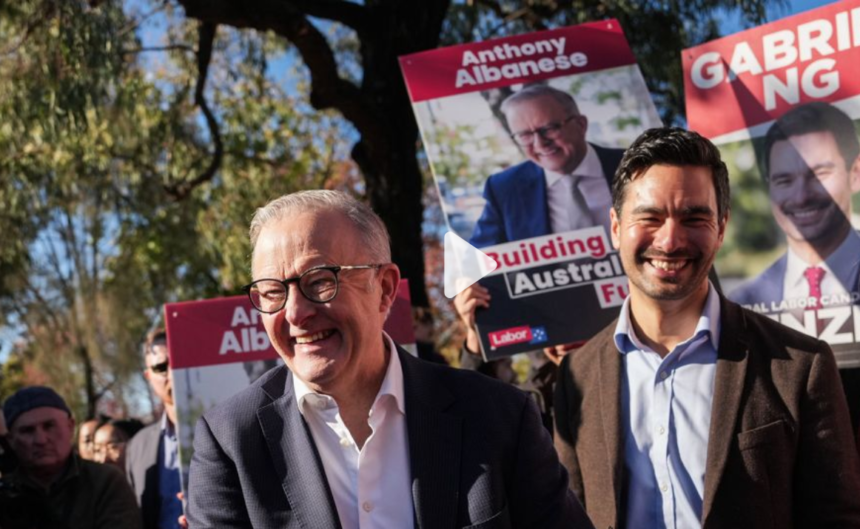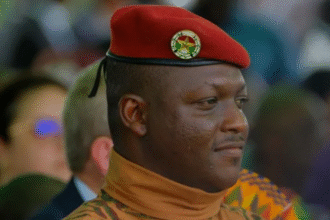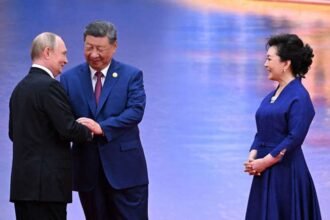By Jeffrey Stein
Sydney, Australia – Prime Minister Anthony Albanese and his center-left Labor Party have secured a resounding victory in Australia’s general election, marking a significant defeat for the conservative Liberal Party and a political landscape increasingly shaped by global anti-Trump sentiment. The win grants Albanese a second term in office, making him the first Australian Prime Minister to achieve re-election in two decades.
The Labor Party is projected to hold at least 87 seats in the 150-seat lower house, a clear majority that defies pre-election predictions of a hung parliament. A jubilant Albanese addressed supporters in Sydney, thanking Australians for choosing stability and optimism amidst global uncertainty.
“In this time of global uncertainty, Australians have chosen optimism and determination,” Albanese declared. His victory follows a similar swing towards the left in Canada, where Mark Carney’s Liberal Party also saw a boost in popularity attributed to reactions against US President Donald Trump’s policies.
The election was a disastrous night for Liberal Party leader Peter Dutton, who not only failed to unseat Albanese but also lost his own seat in outer-suburban Brisbane, a constituency he had held for over 20 years. Dutton conceded defeat, accepting full responsibility for the party’s poor performance.
“Our Liberal family is hurting across the country tonight,” Dutton acknowledged. “We’ve been defined by our opponents in this election, which is not the true story of who we are, but we’ll rebuild from here.”
Anti-Trump Sentiment a Factor?
While Australia doesn’t face the same sovereignty concerns as Canada, Trump’s global tariffs and policy volatility have demonstrably undermined Australians’ trust in the United States, according to recent polls. Analysts suggest Dutton’s campaign struggled to shake off comparisons to the US leader, particularly after his pick for shadow minister for government efficiency declared she wanted to “make Australia great again.”
“If you sling enough mud, it will stick,” said Senator Jacinta Nampijinpa Price when asked if the Trump comparisons hurt Dutton.
Albanese, in contrast, positioned himself as a steady hand, striking an authoritative tone in response to Trump’s earlier decision to impose tariffs on Australia. After Trump’s “Liberation Day” announcement regarding the tariffs, Albanese publicly stated, “This is not the act of a friend.”
Labor’s Mandate: Climate Action and Domestic Priorities
Albanese’s victory reinforces his government’s commitment to key policy areas. He has been credited with improving relations with China and repairing ties with Pacific Island nations. Domestically, he has promised to address rising living costs, offer tax cuts, reduce deposit requirements for first-time homebuyers, and build 1.2 million new homes to tackle the housing crisis.

Climate action remains a central tenet of Albanese’s agenda, following his initial election in the “climate election” of 2022. He reiterated his commitment to cutting carbon emissions and achieving net zero by 2050, contrasting his approach with the US administration’s policies on environmental issues.
“All Australians know renewable energy is an opportunity we must work together to seize for the future of our economy,” Albanese stated.
The Liberal Party’s loss also effectively halts Dutton’s plan to construct seven nuclear power plants at public expense, a proposal critics deemed a delaying tactic to prolong Australia’s reliance on fossil fuels.
“Today’s election result shows that Australians have comprehensively rejected the Coalition’s Trumpist agenda of climate and nature destruction, and its plan to force dangerous nuclear on communities,” said David Ritter, CEO of Greenpeace Australia Pacific.
Dutton’s Departure Marks End of an Era
Peter Dutton’s defeat marks the end of a long and prominent political career. The ex-police officer held high-profile ministerial roles in the previous Coalition government, including Minister for Defense, Immigration, and Home Affairs. He assumed leadership of the Liberal Party after their defeat in 2022, known for his strong right-wing stance. While he attempted to distance himself from Trump in the final weeks of the campaign, his earlier rhetoric and the broader political climate ultimately contributed to his downfall.









